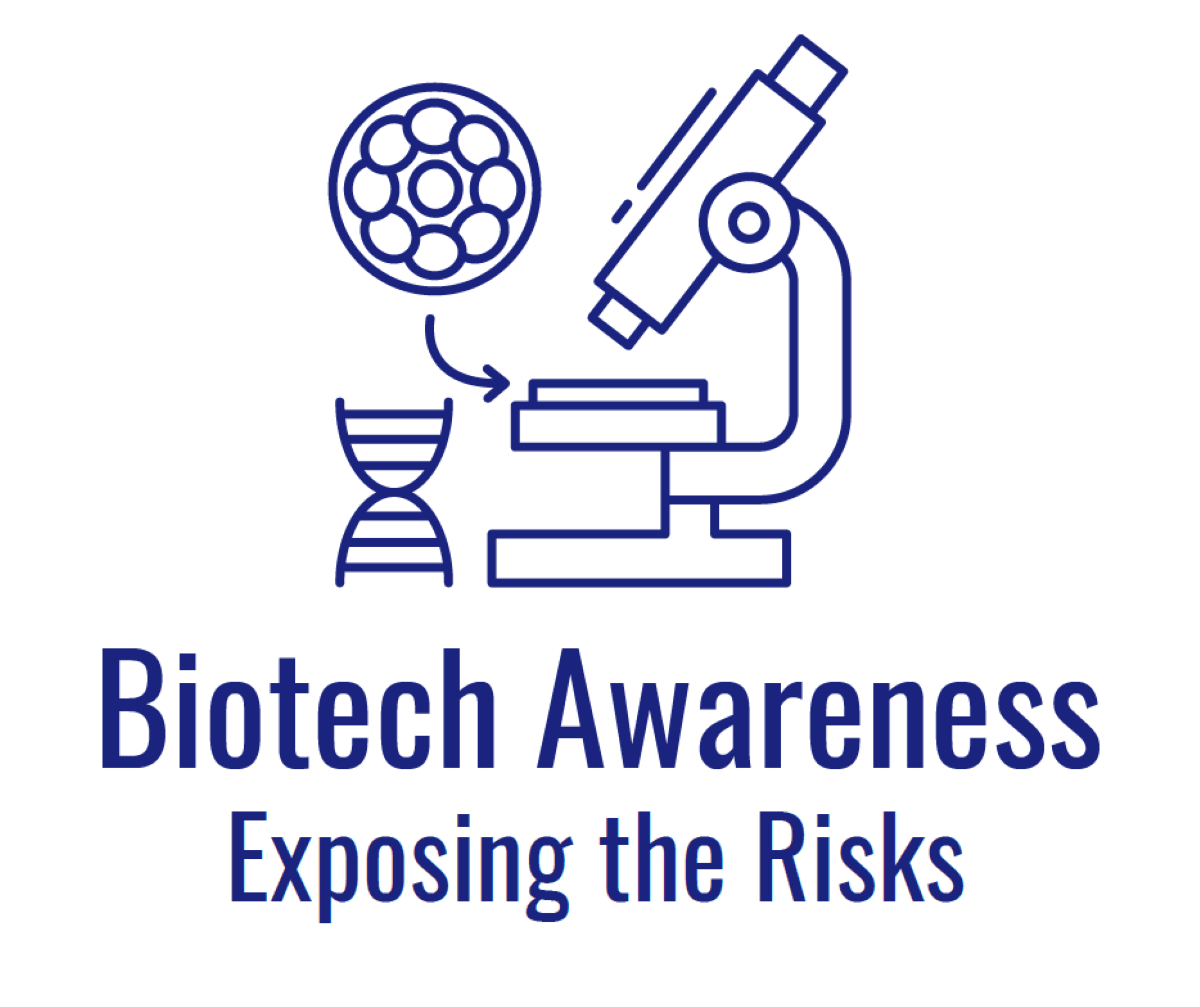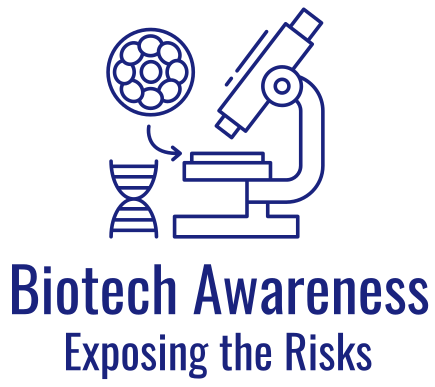Articles
David Bell's story was covered extensively in the news. This page presents brief excerpts from a few of the articles about his story. To see a more extensive list of articles, videos, radio interviews, documents and other resources relating to David's case, see the list of
Resources.
Biotech Worker’s Illness Raises Worries About the Growing, Largely Unregulated, Industry
Little is Known Yet About Risks to Worker Safety, Public Health, Social Justice, and the Environment
By Seth Sandronsky
April 18, 2012
David Bell was a senior at University California at Davis when he began to work at Agraquest, a start-up biotech firm. In the five months and nine days between when he was hired, in August 1998, and June 1999, when he was laid off after he fell sick, he worked primarily on two bio-pesticide projects: Laginex and Serenade.
Laginex is the brand name of Lagenidium giganteum, a water mold, which infects and kills mosquitoes. In a series of experiments, Bell documented what happened in water when mosquito larvae encountered Laginex, and how to lengthen the bio-pesticide’s shelf life. Serenade is a bio-pesticide used to control insects on crops. Its active ingredient is the Bacillus subtilis bacteria, which AgraQuest first found in a Fresno peach orchard. Bell tested soil samples taken from locations worldwide, using a fermentation process to extract the bacteria.
Biotech workers not only risk to exposure to microbes that could cause them harm, they can also be carrying infections out into the public and putting a larger body of people at risk.
Read the article.
Biotech Workers Struggle for Safety Measures
By Seth Sandronsky
September 1, 2010
Sandi Trend, David Bell’s mother, is a tireless investigator and a leading pioneer in publicly discussing safety issues in the biotech industry. She shared the story of Bell, who worked at AgraQuest, a biotech firm in Davis, California, where he fell ill 12 years ago.
Trend has documented nearly two dozen micro-organisms that her son worked with that were found in his body. She will present evidence of bias and conflicts of interest in her son’s workers’ compensation case before the California Commission on Judicial Performance on August 25.
Read the article.
Biotech Canaries -- Sickened Workers Get Little Relief
By Seth Sandronsky
August 12, 2010
David Bell is sick. He developed a lung condition called histoplasmosis and other maladies while working at Davis biotech firm AgraQuest (in 2008).
In late May, The New York Times reported that “the estimated 232,000 employees in the nation’s most sophisticated biotechnology labs work amid imponderable hazards.” The Times told the stories of government and private-sector scientists exposed to bacteria who later suffered comas, lost limbs and even death.
Read the
article.
Cal-OSHA: Going Down the Tubes?
By Dr. Larry Rose
August 1, 2008
There are over 17 million workers in California. The total number of active inspectors that are enforcing the health, and safety regulation are at present 187. The present ratio of actual inspectors (187) to workers (17,219,000) is 1:92,090.
The International Labor's Organization's recommended inspector-to- worker guideline ratio for developed, industrial countries is 1: 10,000, and as Table A indicates, other West Coast jurisdictions have come much closer than California to meeting that standard.
The trends at Cal-OSHA show a shocking decrease of 32% in the number of on-site inspections. Cal-OSHA effective enforcement has been essentially eliminated. The insufficient level of enforcement staffing and the elimination of all Public Health Medical Officers have lead to a inability of the agency to meet its mandated responses to workplace health and safety as enumerated in the California Labor Code.
Note: Larry Rose M.D., M.P.H., worked for 28 years as the senior Public Health Medical Officer for the statewide Cal-OSHA program and was on the senior faculty in the Occupational and Environmental Medicine Department at the University of California, San Francisco (UCSF).
Read the article.
Read additional articles about the decline of Cal-OSHA.
The Criminal Cover-Up of Pam Marrone's Agraquest Operation
By Sandi Trend
February 9, 2009
The Davis biotech company Agraquest which was owned by Pam Marrone has been engaged in a criminal conspiracy to cover-up it's illegal use of fungus and bacteria without informing California and US oversight agencies being made aware of their use.
As a result biotech worker David Bell and other workers have been subject to contamination and sickness from these substances.
The Davis community health and safety was also put in jeopardy when the company instructed Bell and other workers to dump these substances on the grounds.
Read the article.
Whistleblower David Bell Tells His Story of Unsafe Work Conditions, Lack of Biotech Worker’s Rights and Acquired Illness after Working at AgraQuest
Watchdog on Science
Tuesday, February 17, 2009
After an exposure to a mysterious biological material labeled AQ153 in January 1999 at a biotech company called AgraQuest, David Bell and all his co-biotech lab workers became ill to the point that the laboratory had to be temporarily closed.
David Bell unfortunately lapsed into a serious illness requiring several life-saving surgeries. He remains chronically ill today and believes AgraQuest should be held responsible. His story depicts the dangers in the biotech industry and the unsafe work conditions imposed upon biotech workers. It details the lack of regulations on the biotech industry resulting in serious public health and safety threats.
His story provides a clear case documenting the lack of safety rights, lack of rights to access pertinent exposure records for healthcare and the lack of directed medical care for the injured biotech worker. Conflicts of interests between government, doctors and private industry add to the difficulties that David Bell faced, making it impossible for him to receive directed healthcare for his exposure or to have legal remedies through civil action, worker’s compensation, OSHA or any other government agency.
David Bell’s story is a testimony to the fact that Biotech workers have no rights to safety or healthcare and remain abandoned by government and the biotech industry. After nine years, David is still struggling to discover what he was exposed to at AgraQuest that made him so sick. His story brings to light serious public health concerns, not only for workers, but for the community at large.
Read the Watchdog on Science
article and watch the
videos to learn more about David Bell's injury at AgraQuest.
Safety Issues Plague Designer Gene, Nano Workers
By Richard Brenneman
April 1, 2012
Sandi Trend, Joan Chou and David Bell spoke before a packed house at Berkeley’s David Brower Center Thursday night during the “Unmasking the Bay Area Bio Lab and Synthetic Biology” forum, sponsored by a coalition of environmental and worker safety organizations.
One of the evening’s most compelling stories came from David Bell and his mother, Sandi Trend. In 1999, Bell, then a senior at UC Davis, found a job at a local biotech company -- AgraQuest.
He was working on two projects, one seeking fungus-killing organisms for a fungicide to be marketed to organic farmers, and the second seeking microbes to kill mosquito larvae.
There’s no disputing that Bell got sick while working at AgraQuest, contracting an illness that required multiple surgeries and monthly blood infusions costing $7,000 each because the illness had destroyed his immune system’s ability to produce T-cells, essential for fighting off infections.
Adding to the complicated nature of the case -- AgraQuest sat on the hospital’s board, and a judge who killed a subsequent lawsuit was married to a spouse “who worked with people involved with the case,” said Trend.
Read the article.
The Fungus and Bacteria of Deregulation and Biotech Worker David Bell
By Steve Zeltzer
March 20, 2008
It was a long road before Sandi Trend, the mother of injured Agraquest worker David Bell, ended up at the little known California Fraud Assessment Commission FAC on September 11, 2007. The commission which is under California Insurance Commissioner, Steve Poizner, is required to provide oversight on the prosecution of workers compensation insurance fraud in California and distributes over $25 million a year to California District Attorneys for this work.
Trend’s son, David Bell, had begun work at the Davis based biotechnology company, Agraquest, in August 1998 and was one semester away from receiving his Bachelor of Science degree from California State University, Sacramento, with a major in biology and a minor in chemistry. He was thrilled to have the opportunity to put his education to work in developing biotech for use in society.
The U.S. government, the University of California at Davis and the massive chemical biotech pesticide industry were all part of a web in this very profitable world of agricultural biotechnology. In all likelihood, this is the very reason that the cover-up at Agraquest has been hidden for so many years.
The potential dangers of these products also raise the issue of why the Federal government has failed to properly supervise, investigate and manage the introduction of genetically engineered products into the workplace and environment.
Dr. Sheldon Krimsky, a professor at Tufts University and co-editor of Why We Need A Genetic Bill of Rights: Right and Liberties in the Biotech Age, has argued that a lack of regulation and allowing the companies to monitor and regulate themselves is a growing danger and threat to the environment and a threat to all human rights and protections.
Read the
article.
Blood, Phlegm and Tears: David Bell claims he was sickened while working at a Davis biotech firm, but no one’s listening
By Seth Sandronsky
October 16, 2008
Former Sacramento resident David Bell was healthy when AgraQuest, a Davis firm that manufactures biological pesticides, hired him as a researcher and technician in August 1998.
Five months later, he came down with severe flu symptoms. His face and teeth grew numb. Breathing became difficult and he developed severe headaches. His nose bled and his sputum turned bloody.
Ten years, four sinus surgeries and numerous medical treatments later, Bell remains incapacitated by the illness.
Bell and Trend (David's mother, Sandi Trend) are not giving up their quest. They’ve gone to the workers’ compensation board. They’ve contacted elected representatives.
Bell worked primarily on two biopesticide projects, Laginex and Serenade. Laginex is the brand name of Lagenidium giganteum, a water mold (fungi), which infects and kills mosquitoes.
Serenade is a biopesticide used to control insects on crops. Its active ingredients are the Bacillus subtilis bacteria, which AgraQuest first found in a Fresno peach orchard.
Read the article.
SPREAD THE WORD. RAISE AWARENESS ABOUT RISKS IN THE BIOTECH INDUSTRY.
FAIR USE NOTICE: This site may contain copyrighted material the use of which has not always been specifically authorized by the copyright owner. We are making such material available in our efforts to advance the understanding of environmental, political, human rights, economic, democracy, scientific and social justice issues. We believe this constitutes a 'fair use' of any such copyrighted material as provided for in section 107 of the US Copyright Law. In accordance with Title 17 U.S.C. Section 107, the material on this site is distributed without profit to those who have expressed a prior interest in receiving the included information for research and educational purposes.

